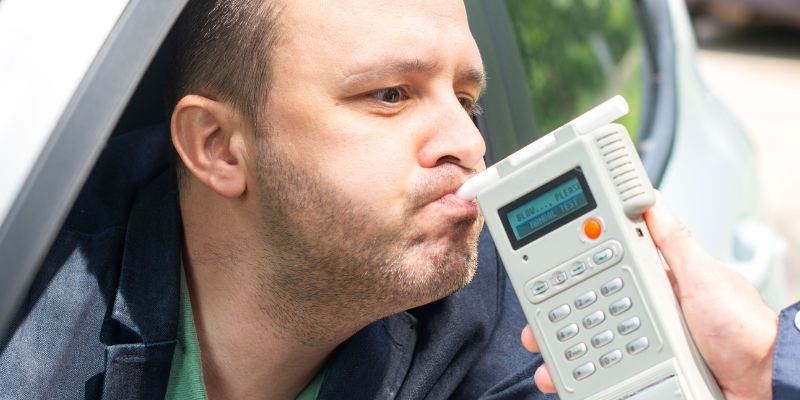
Wartime veterans face a unique set of challenges when it comes to accessing the full range of benefits they are entitled to. Many encounter confusing paperwork, strict deadlines, or unexpected denials that can make the process overwhelming. Having a dedicated wartime veterans benefits lawyer can make a significant difference in securing the support and compensation our veterans have earned.
We understand how vital these benefits are—not just for veterans, but for their families, too. Whether it’s disability compensation, pension claims, or survivor benefits, professional legal guidance can help cut through red tape and advocate for our rights.
By working with lawyers specializing in veterans benefits, we’re better equipped to navigate complex regulations and strengthen our claims. This support ensures that deserving veterans are not left without the help they need after their service.
Understanding Wartime Veterans Benefits
Navigating wartime veterans benefits requires familiarity with specific benefit types, eligibility rules, and documentation. Our goal is to clarify what is available and what is required to help veterans, surviving spouses, and families access the support they have earned.
Types of Wartime Veterans Benefits
Wartime veterans and their families may qualify for several VA benefits. The most common VA pension benefits include the Basic Pension, Aid and Attendance, and Housebound benefits.
Disability compensation is available for veterans who incurred or aggravated an injury or illness during active duty. Surviving spouses or dependents may be eligible for a death pension or Dependency and Indemnity Compensation (DIC).
Other notable benefits include health care, education support through the GI Bill, and life insurance policies. Each program has unique application requirements and payout structures, depending on the veteran’s service record and current needs.
Eligibility Requirements for Wartime Veterans
To qualify for wartime veterans benefits, we must confirm service during a defined wartime period as set by VA guidelines. For pension benefits, the veteran generally must have served at least 90 days of active duty, with at least one day during a period of war.
Eligibility also takes into account family income and asset limits. The 2025 threshold for countable assets is currently $155,356, though this can change. VA also reviews medical evidence demonstrating need for Aid and Attendance or Housebound status. Surviving spouses must show proof of marriage and the veteran’s qualifying service.
Key Documents and Forms
Applying for these benefits requires careful organization of documents. The primary form for initiating most claims is VA Form 21-526 for disability compensation and pension.
Additional documents often include:
- DD Form 214 (Certificate of Discharge)
- Marriage certificate (for surviving spouses)
- Medical records and physician reports
- Financial statements (for asset and income verification)
A checklist can ensure we have what we need before filing:
| Document | Purpose |
| DD Form 214 | Proof of military service |
| VA Form 21-526 | Claims application |
| Marriage/Death certificates | Verifying relationships |
| Medical evidence | Support for benefit claims |
| Financial records | Income/asset evaluation |
How Wartime Veterans Benefits Lawyers Help
Wartime veterans often face challenges in accessing the full range of benefits to which they are entitled. Our legal professionals focus on overcoming common barriers, helping veterans, surviving spouses, and families navigate the often complex application and appeals systems.
Navigating VA Claims and Appeals
We assist veterans in preparing and submitting claims for service-connected disabilities, ensuring that all necessary evidence and documentation are included. Many claims are initially denied or rated lower than appropriate, requiring expertise in pursuing options such as supplemental claims, higher-level review, or a board appeal.
Understanding the steps in the VA process is vital. Our experience allows us to communicate with the Department of Veterans Affairs, manage deadlines, and avoid errors that can delay approval. We also help gather relevant medical records and service documents to support the case.
These efforts can be especially helpful for Texas veterans and those with complex service-connected conditions. By handling the procedure from start to finish, we help veterans avoid frustration and increase the chance of a favorable result.
Maximizing Disability and Pension Benefits
Making the most of available veterans’ benefits often depends on the correct calculation of disability rating and eligibility for pension programs. We review a veteran’s medical history, service records, and current health status to identify factors that affect benefit levels.
Many wartime veterans are eligible for additional aid, such as support for assisted living, long-term care, home health care, and help with activities of daily living. We explain these options and assist with claims that reflect each veteran’s actual needs.
If a veteran is eligible for both service-connected disability and non-service-connected pension, we clarify when and how different benefits may apply. Our guidance helps ensure no entitlements are overlooked.
Legal Support for Surviving Spouses and Families
The families of deceased wartime veterans may qualify for benefits such as Dependency and Indemnity Compensation (DIC), survivor’s pension, or assistance with funeral costs. We educate families about eligibility and help with the paperwork needed for these benefits.
Common issues include proving marriage duration, confirming service-connected cause of death, and documenting financial need. We work to resolve these issues by requesting military records and liaising with the VA as required.
We also support spouses and dependent children needing help with housing, healthcare, or educational benefits that arise because of a veteran’s death or disability.
Selecting the Right Veterans Benefits Lawyer
Selecting experienced help is critical for a successful veterans’ benefits claim. We recommend confirming licensure, experience with VA law, and familiarity with the specific needs of wartime veterans and their families.
A qualified lawyer should understand not just the legal side but also the impact of service-connected conditions on daily life, particularly for those requiring assisted living or specialized care.
Considerations include:
- Experience with VA claims and appeals
- Track record for maximizing disability and pension benefits
- Ability to work with Texas veterans or those from your state
- Clear communication and prompt responses
Asking about previous success in securing benefits for cases similar to yours can help ensure the lawyer can handle your unique situation.





